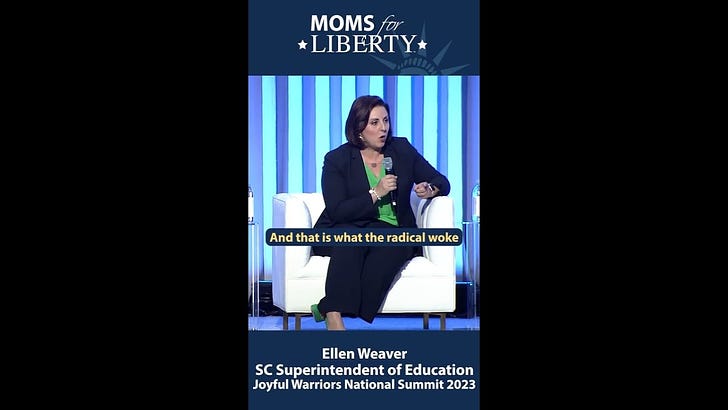Updated to add: the draft regulations Weaver seems to be addressing in this speech were made public the following week. As written, they would likely result in a ban of Frederick Douglass’ book, which contains explicit language, violence, and references to sexual assault of enslaved people by slaveowners— all essential to the purpose of the book— and from which Weaver quotes at length during the speech.
On October 13, South Carolina Superintendent of Education Ellen Weaver gave some remarks at the Midlands Regional State Department of Education conference workshop. These remarks were recorded by a participant and provide the audio for the video below. In the past, this event had been conducted jointly with The South Carolina Association of School Librarians (SCASL), but this year two other sessions were canceled after Weaver abruptly cut ties with the group without prior communication.
Keep reading with a 7-day free trial
Subscribe to Other Duties (as assigned) to keep reading this post and get 7 days of free access to the full post archives.



